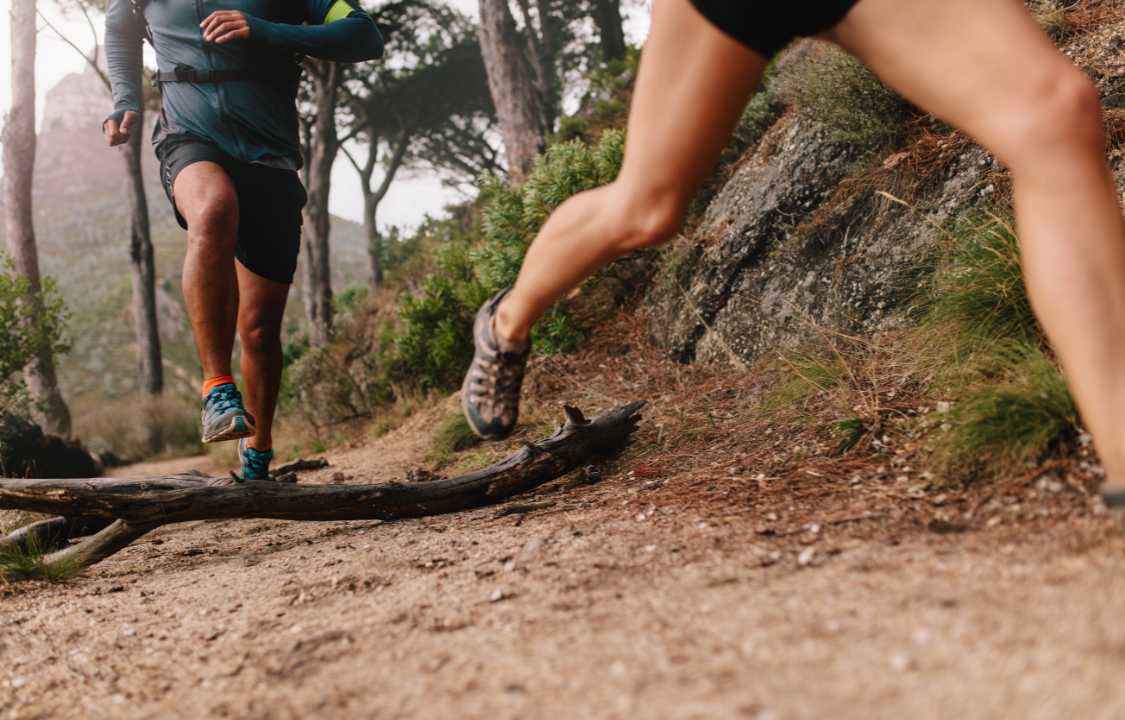Health Care
Injury Prevention and Recovery Tips for Mountain Runners
Mountain running is a captivating discipline within the realm of trail running, offering an adrenaline-fueled twist with its unique challenges. While both trail running and mountain running involve off-road terrains, the latter sets itself apart by introducing the element of significant elevation gain. To complicate matters further, mountain running can encompass a variety of surfaces, including rocky trails and even surfaced roads. Additionally, the niche sport of sky running takes this adventure to new heights, with races held at elevations exceeding 2,000 meters. These extreme races test the endurance and skill of runners in unparalleled ways. Some of the most prestigious ultrarunning events, like the Ultra-Trail du Mont-Blanc (UTMB) in Europe and the Badwater Ultramarathon in the US, prominently feature grueling elevation gain, making mountain running an attractive challenge for athletes seeking the ultimate test of physical and mental resilience.
For those who venture into the world of mountain running, the primary objective is to navigate the course as swiftly as possible while prioritizing safety. Given the demanding nature of mountainous terrains, mountain runners must be in exceptional physical condition and possess nimble agility. Therefore, it is imperative to emphasize injury prevention and recovery when embracing this demanding sport. Common injuries among mountain runners include stress fractures, ankle sprains, Achilles tendon problems, knee pain, IT band syndrome, and the more typical issues such as muscle strains and blisters. To ensure a safe and successful journey through the mountains, consider the following tips for staying injury-free and facilitating swift recovery in the event of an injury.
1. Build Strength and Flexibility
A foundation of robust muscles and joints is crucial for injury prevention. Incorporate strength training exercises into your routine, with a focus on core, hip, and lower body strength. Moreover, do not overlook flexibility training, as it enhances your range of motion and reduces the risk of muscle strains. Prioritize both dynamic and static stretches at the beginning and end of your workouts. If you experience tightness in your hips and leg muscles, consider sports massage to alleviate the tension.
2. Gradually Increase Mileage and Intensity
The allure of rapid progress can be enticing, but avoiding the temptation to push yourself too hard too quickly is essential. Incrementally increase your mileage and training intensity, allowing your body to adapt and avert overuse injuries. Always heed your body’s signals and grant it the rest it requires to prevent burnout and injury. Initiate your journey with a manageable workload and transition to more taxing routines as you acclimate.
3. Train on Varied Terrain
Mountain running is all about conquering diverse terrains, including steep ascents, treacherous descents, rocky paths, and uneven trails. To prepare your body for these multifaceted challenges, incorporate training sessions that simulate mountain running terrains. Such exercises will strengthen the specific muscle groups and joints engaged in mountain running, fortify your balance and stability, and ultimately reduce the likelihood of injury.
4. Wear the Right Gear
Invest in top-quality running shoes that offer excellent traction and ankle support. Proper footwear can be a game-changer, shielding you from slips, falls, and ankle injuries. Furthermore, it’s essential to replace your running shoes as they wear out, ensuring you consistently receive the protection your feet need. Consider starting a subscription to have a fresh pair at the ready. Compression gear can also provide essential muscle support, reducing fatigue during long runs.
5. Nutrition
Adequate hydration and nutrition are non-negotiable elements for injury prevention. Muscle cramps, fatigue, and related issues can easily lead to injuries if you neglect your body’s needs. Consume ample water before, during, and after your runs. For longer expeditions, carry sports drinks, gels, and other nutritional supplements to ensure you have a reliable source of fuel to sustain your energy levels.
6. Warm-Up Before a Run
A dynamic warm-up is the key to priming your muscles for the demands of mountain running. Incorporate exercises like leg swings, lunges, and high knees to activate your muscles and elevate your heart rate. Following your run, execute a series of static stretches to facilitate cool-down and enhance flexibility.
7. Listen to Your Body
The most important tip of all is to pay close and attentive heed to your body as you embark on your mountain running journey. If you experience any pain or discomfort during your runs, do not ignore these crucial signals. Ignoring even minor discomfort can potentially escalate into more severe and debilitating problems. It’s vital to listen to your body’s cues and take immediate action. If the pain persists or worsens even after several days of rest and self-care, it is highly advisable to seek the expertise of a qualified sports physiotherapist who can provide you with professional guidance and a tailored treatment plan to ensure your swift and safe return to the trails. Remember, prioritizing your well-being and addressing issues promptly will not only keep you running stronger but also enhance your overall mountain running experience.
Mountain running is an exhilarating and physically demanding pursuit that demands dedication, preparation, and respect for the formidable terrain it presents. By embracing a thoughtful and holistic approach that encompasses strength, flexibility, terrain-specific training, and an unwavering commitment to self-care, you can significantly reduce the likelihood of injury and elevate your chances of excelling in this challenging and rewarding sport. Always remember that taking a few days of rest when necessary is not a sign of weakness but a proactive and essential measure to safeguard your long-term well-being, ensuring that you can continue conquering the heights and embracing the breathtaking beauty of mountain running.

